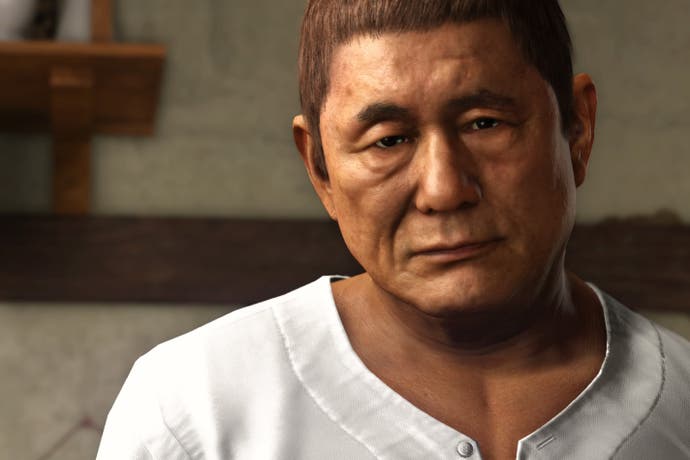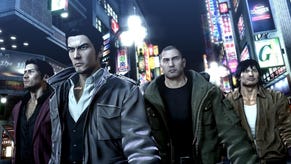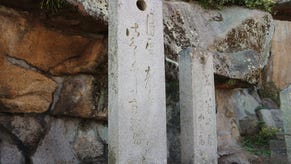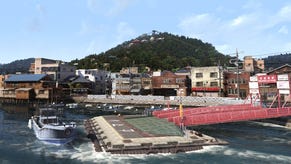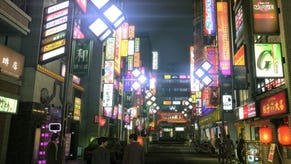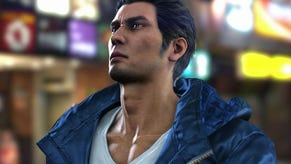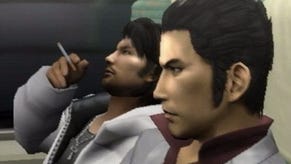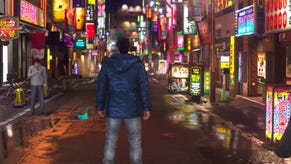Yakuza 6 review - a new beginning and a fitting end for Sega's great series
Tokyo story.
One of the many enduring myths in modern games is that Sega's a spent force, its days producing brash and brazen blockbusters well and truly behind it. Which is bunk, of course - it's just that for far too long we didn't get to see much of them over in the west. Yakuza is a behemoth of a series, a triple-A blast of whiskey-soaked madness and meticulous detail all delivered with that unmistakable Sega swagger. Ever wondered where the Sega of old you once loved ended up? Take a walk on the streets of Kamurocho, the series' thinly-disguised take on Shinjuku's Kabukicho district, and you'll find traces of it everywhere.
Yakuza 6, which makes its way west next month having originally released in Japan at the tail-end of 2016, marks a new beginning for the series, as well as a significant end; this is the first in the series to be realised on an all-new engine, while it also marks the last headline appearance for Kazuma Kiryu, the star of Yakuza since its inception back in 2005. It all makes for a more streamlined, much punchier entry than we've seen in recent installments.
Indeed after the sprawl of Yakuza 5, with its multiple protagonists and numerous cities, as well as the 80s excess of the excellent Yakuza 0, Yakuza 6 can often feel a little threadbare. There are just the two main locations - Kamurocho returns, of course, joined by a lengthy detour to the slightly sleepier streets of Hiroshima's Onomichi - and just the one protagonist in Kiryu, and even then returning favourites have been pared back. Kamurocho sees its northern reaches blocked off, while Kiryu himself doesn't have access to the multiple fighting styles he enjoyed back in Yakuza 0.
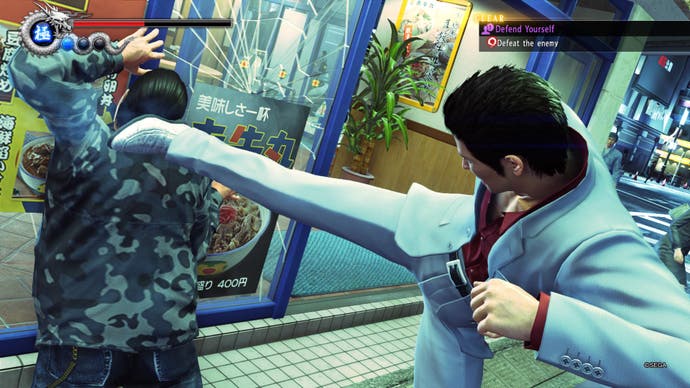
And while it's an all-new engine, this is by no means an all-new Yakuza. It's still the same mix of small but dense open-world exploration, myriad mini-games and overstated combat all tied together with lengthy exposition; it's still a game where Sega's rich history crashes brilliantly together, an after-hours Shenmue where the pumped-up pugilism is borrowed from Yakuza creator Toshihiro Nagoshi's own Spikeout series, while this time out there are cameos from the likes of PuyoPuyo and even the exquisite Virtua Fighter 5 Final Showdown in its entirety to be found in the city's arcades.
It's in the detailing that Yakuza comes alive, and 6's new engine allows those details to appear finer than ever (even if the framerate takes a hit, halving from Yakuza 0's 60fps to 30fp, a target that base PS4 models can sometimes struggle to hit). Textures feel richer - as you can tell by just looking at the wrinkles pointedly added to Kiryu's face for his swansong - and you're now able to enter interiors without a loading screen getting in the way. More than a little's been lost, but a fair amount has been gained too.
That new richness is much appreciated in a series that at its heart offers digital tourism of the highest order. It's the kind of game in which you can happily spend an hour or two watching revellers spilling across the streets of Kamurocho under its many lights, wandering down streets and alleyways and just soaking in that detail; the mad scrabble of seemingly unrelated goods in Don Quijote, or the suspicious buns that simmer away on the front counter of a conbini. Take a tour in the new first-person mode and it won't take long to convince yourself that Kamurocho, constructed slowly over the years and across Yakuza's many instalments, is one of video game's great wonders, made all the more fantastical by its real world roots.
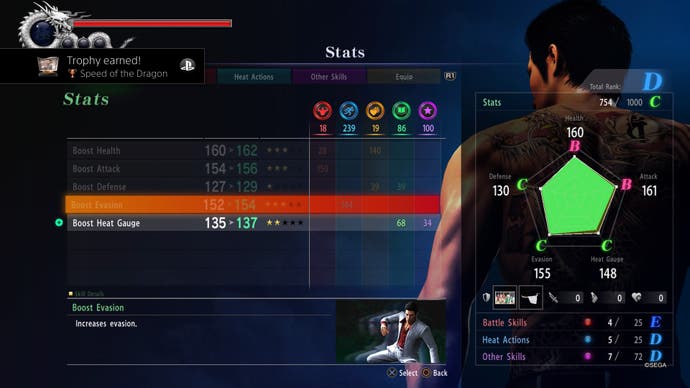
In the more sedate backdrop of Onomichi there are echoes of Shenmue's Yokosuka to be found - it's another port city with some of that same run-down weariness - and it's where you'll find Yakuza 6's best new characters. Tatsuya Fujiwara, actor famous for his star turns in the likes of Battle Royale and Death Note, lends his likeness for Yuta Usami of Onomichi's Hirose family, but really it's Takeshi Kitano's appearance as family head Toru Hirouse that's more worthy of note.
It's hardly a show stealing performance - Kitano puts in a downbeat, detached turn as you might expect if you've seen any of his films - but it brings Yakuza full circle, while affirming how far the series has come. Nagoshi's series has always shared so much with Kitano's films - that same mix of absurdity and melodrama, of comedy and violence and banality and brutality - to see Kiryu and Kitano together feels like some sort of homecoming.
And Yakuza and Kitano's films share that same deeply warm human kernel. Maybe it's just the sentimentality involved in saying farewell to Kiryu, but Yakuza 6, while falling short when it comes to mere feature sets and pure real estate, feels like the most human entry yet. Kiryu's departure, when it comes, feels satisfying and complete, a neat payoff for what's an understandably downbeat entry in the series.
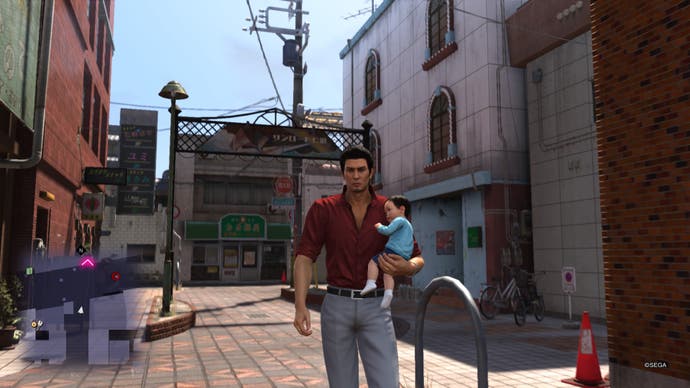
It's in those downbeat moments that Yakuza 6 really comes alive. For all the high drama of the main storyline, and the far-out wackiness of the many optional sidequests, a standout moment does nothing more than send you out into the darkness of Onomichi in the dead of night, asking you to explore this new city and ask around in order to find some formula milk for the baby boy you find in your care.
It's absurd and delicate, overstated by a gaudy mini-game in which you swing the baby in order to settle it, yet somehow it's still strangely touching. Such is this series' magic, really. Yakuza 6 might not be the best entry yet - it lacks the generosity of 0, or the breadth of 5 - but it's still a fine game. There's arguably a place for a slimmer, more streamlined Yakuza, and for all the omissions and edits made as Yakuza debuts on a new engine there remains an abundance of charm.
Where the series heads after this is uncertain - there's Yakuza Online, which introduces a new protagonist, while the Yakuza team is no doubt taking a breather having just delivered a take on the hyper violent world of Fist of the North Star - but there's no real need to worry about that just yet. For now just revel in this, one of Sega's greatest series which remains in its pomp.
